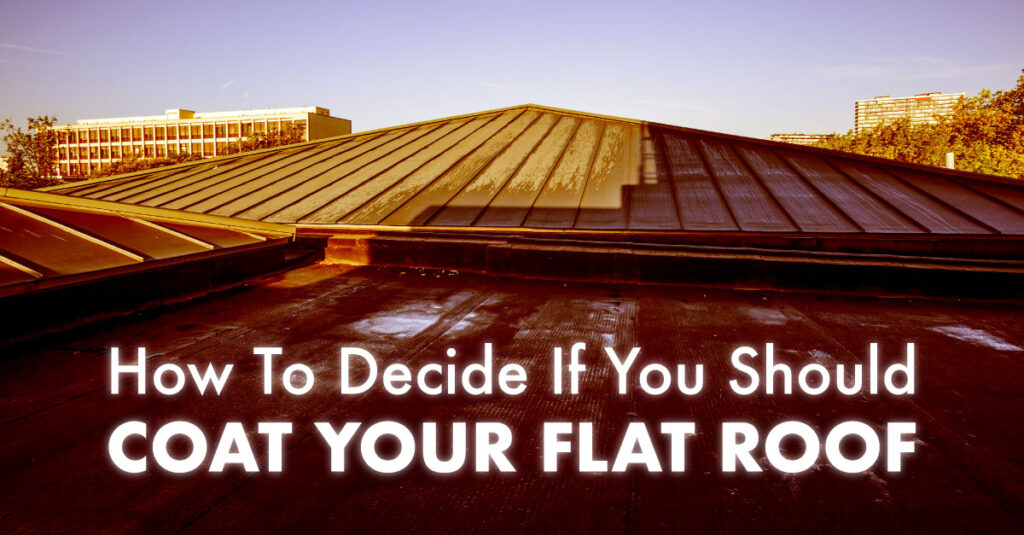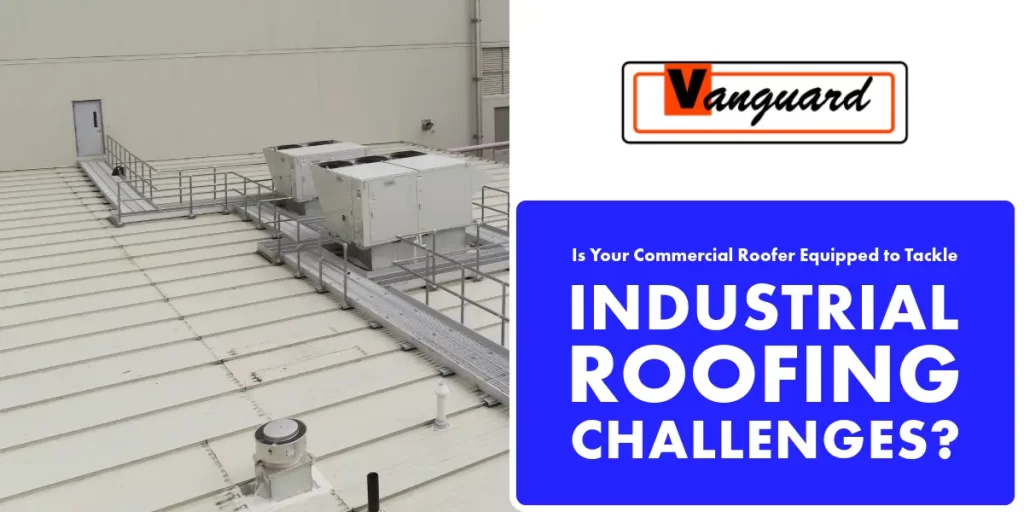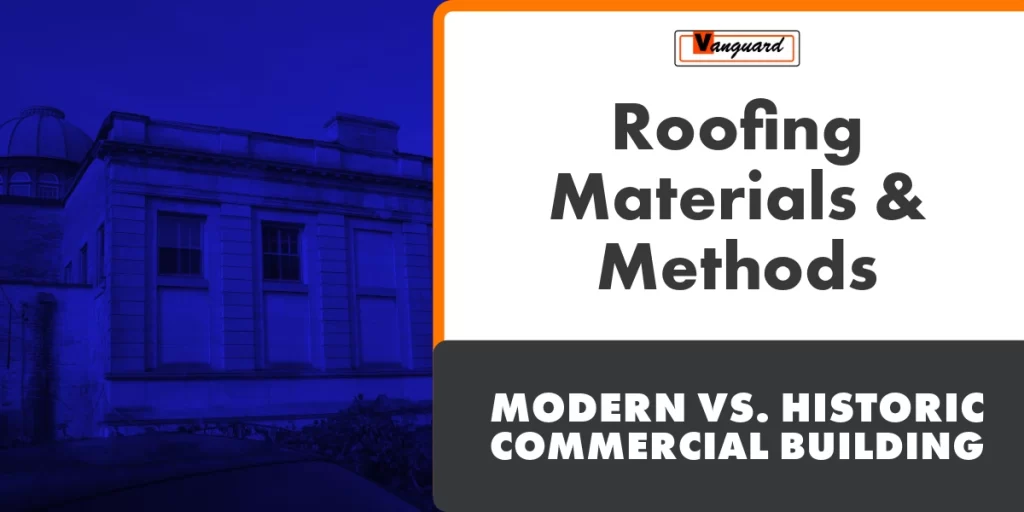Flat roofs offer several advantages to commercial building owners and operators. They’re more affordable than sloped roofs and provide more space for rooftop installations. They’re also more accessible and easier to maintain.
You might find yourself debating whether you need to coat your roof. The final decision depends on various factors. These include what type of flat roof you have, how old it is, and your annual maintenance costs.
Popular Types of Flat Roof Coatings
Advances in technology mean it’s becoming easier to coat your roof. Various circumstances determine your exact choice of coating. Chief among them is the type of material the roof is made of. Popular types of flat roof coatings include:
- EPDM – It’s easy to apply because it’s a single-ply product. It’s made of synthetic rubber which gives it the ability to add a vapor barrier. It also comes with tape for making joints. These roof coatings last for decades.
- Chlorosulfonated Polyethylene – It’s also made of synthetic rubber. This material allows its joints to be heated which makes it easy to join separate parts into one sheet.
- Cold Liquid Application – This is composed of a series of different, fast curing coating materials. You can apply it at any time, so long as your roof is snow-free.
- PVC Roof Coating – It has variations depending on the specific manufacturer. Although this technology is newer than EPDM, its popularity is steadily increasing.
- Silicone Coating – Its main strength lies in its non-organic nature. This makes it more durable than other options. It also has a distinctive, glossy white look which improves its aesthetic quality.
How to Tell if your Flat Roof needs Coating
Flat roofs are not completely level. They slope slightly to allow water drainage. Some of the biggest problems associated with these roofs are ponding and leakages. Over time, such drainage issues weaken both your roof and the entire building.
Ponding also causes cracks in PVC. This phenomenon is known as crazing. If left unchecked for too long, it causes water to seep into the roof. The coating prevents such problems from threatening the building’s structural integrity.
It’s advisable to coat your roof as a pre-emptive measure. This should ideally be done at least every 5 years.
Benefits of Coating your Flat Roof
The most visible benefit of coating your roof is the prevention of water leakage. It also integrates well with the old surface. The result is a thicker, better-looking appearance. Other advantages of a properly applied coating include:
- Extend roof lifespan by reducing heat transfer into the building, especially during the summer. Flat roofs can also be re-coated every 5 or so years, which increases their longevity by decades.
- Reduce thermal shock caused by variations in temperature. Random expansions and contractions of the roof membrane mean faster wear and tear, which is more likely to cause water leakage.
- Reduce energy costs by reflecting the sun’s rays. A coated roof automatically lowers HVAC costs by up to 80%. This makes your building energy efficient by lowering your overall cooling costs. This also reduces the heat load on your building.
- Help mitigate leaks by protecting the surface of your roof.
Roof coatings can also be applied without affecting the rest of the building or its inhabitants. The overall benefits are a long-lasting roof and reduced maintenance costs.
Common Coating Issues
The following are the most common coating-related issues:
- It’s harder to coat ballast and gravel roofs due to their rough surfaces. You need to use a special treatment which improves adhesion.
- Some types of roof coatings can result in indoor air quality problems caused by strong odors. The solution is to use low or no VOC coating.
- Ponding water might present a problem depending on the coating material used. Ensure your roofing contractor suggests a waterproof solution.
- Installing a coating will most likely void the warranty on your new roof. To avoid this, coat your new commercial roof immediately after installation. This ensures the warranty is all-inclusive.
- Coating a dirty roof is not advisable. Before beginning, your contractor should thoroughly clean it and ensure it’s dry.
To avoid these issues, always hire qualified contractors to coat your flat roof. Given their years of experience, they can anticipate problems and solve them accordingly. They can also pick coating materials which best suit your roof surface type. As an added bonus, they’ll take care of any necessary regulatory requirements.
Enjoy all the Benefits of a Professionally Coated Flat Roof
Vanguard is your one-stop-shop for all commercial roofing needs. Our superior services will always keep your building in the best shape possible. We also have a team of dedicated roofer specialists always on standby to address any of your queries. Our services are available in New York, Hudson Valley, and Western Massachusetts. Act now and enjoy the long term benefits which are available to all of our clients.



